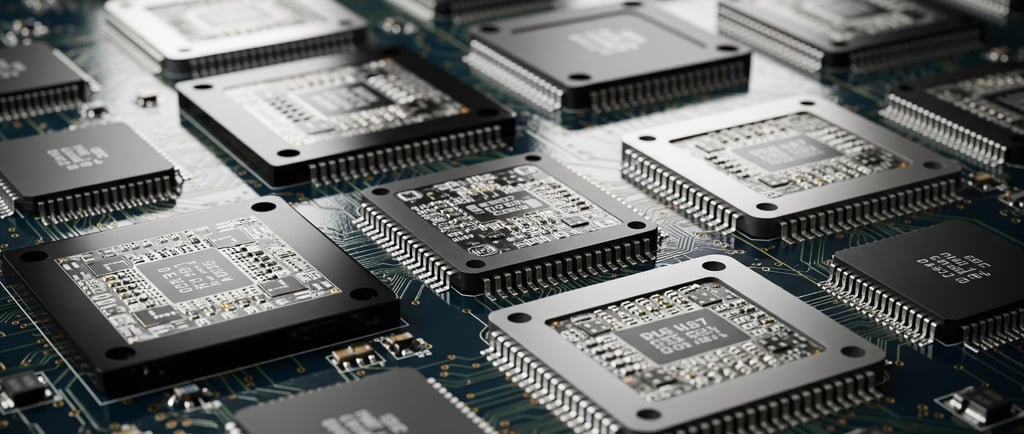Trump Imposes 100% Tariff on Chip Imports to Boost U.S. Manufacturing
President Trump enforces 100% tariff on imported chips unless made in the U.S. Apple pledges $100B more investment. A bold move for tech independence.
Raja Awais Ali
8/7/20252 min read


President Trump Imposes 100% Tariff on Some Chip Imports to Boost U.S. Tech Manufacturing
On August 7, 2025, President Donald Trump announced a bold new economic policy targeting semiconductor imports. In a high-stakes move aimed at revitalizing U.S. chip manufacturing, the Trump administration has imposed a 100% tariff on select imported semiconductor chips and related components, unless those companies are actively investing and producing in the United States.
In a press briefing, President Trump emphasized, “This isn’t just about tariffs; it’s about jobs, technology, and American independence. If you want access to our market, you must build in our country.” He warned that companies making “vague promises” to invest in America would not be exempt — only those with “active U.S. production” would be spared from the steep import duties.
This major decision is part of Trump’s new Reciprocal Policy, which went into effect immediately. It is designed to ensure fair trade and encourage foreign and domestic companies to manufacture high-tech products like chips within the United States.
Coinciding with this announcement, tech giant Apple revealed it will increase its U.S. investment by an additional $100 billion, raising its total American-based investment to $600 billion. Apple’s announcement was seen as a direct response to the new tariff policy, further reinforcing its long-term commitment to U.S. production.
The U.S. stock market responded swiftly. Shares of companies already operating in the U.S., including Apple, Samsung, and TSMC, rose sharply. Meanwhile, firms heavily reliant on overseas chip production saw stock declines due to uncertainty over potential cost increases and restricted market access.
South Korean chipmaker SK Hynix experienced a temporary dip in share value but clarified later that it has significant operations and ongoing expansion plans in the U.S., making it likely to qualify for an exemption under the new policy.
While some economists expressed concern that the new tariffs could raise consumer prices in the short term, many investors and industry leaders welcomed the move as a necessary step toward long-term technological independence. Trump’s administration argues that the tariffs will lead to more jobs, faster innovation, and reduced reliance on foreign supply chains.
However, the announcement triggered international concern. Some countries that export chips to the U.S. warned of potential trade retaliation or legal challenges through the World Trade Organization.
Despite the controversy, Trump remained firm. “We’re not going to let other countries eat our lunch anymore. Either manufacture in America — or pay the price,” he said.
This sweeping move marks one of the most significant shifts in global chip policy and places the United States on a path toward greater control over its critical technology infrastructure.